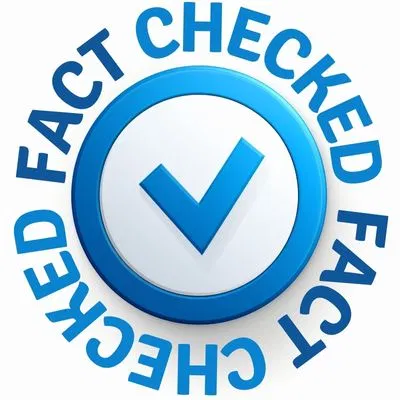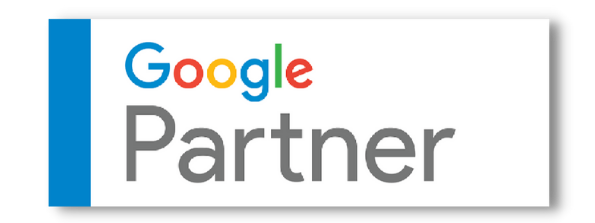How to Tell If You Are Being ‘Shadow Banned’ on Facebook

Ever feel like your Facebook posts are vanishing into thin air, no likes, no comments, no reach? You might be shadowbanned. While Facebook won’t admit it outright, many users suspect they’ve been quietly silenced.
But what is shadow banning on Facebook, and how can you tell if it’s happening to you? We’ll break down the signs of a shadow ban, why it happens, and what you can do about it. Whether you’re a business owner, content creator, or just trying to be heard, understanding the Facebook shadow ban could be the key to reclaiming your digital voice.
Let’s dive in.
What Is Shadowbanning on Facebook?
Facebook shadow ban is a covert content moderation inception. The fact is that your posts are still there, but are all but invisible to others. Nothing, no red flag, or even a telltale warning, there is an abrupt plunge in engagement.
If you’re wondering what shadow banning on Facebook is, you can think of it as muting without drawing attention to it. You continue yelling to the empty air, and no one is listening. This is a strategy to scale back on material that infringes policies without incurring a backlash.
The worst of all? It will be so profound that you won’t even realize it happened. This is why it is essential to recognize the symptoms of a Facebook shadowban for each user.

Signs You May Be Shadowbanned on Facebook
Are you noticing that your content is no longer reaching your audience? They could be shadowbanned, and it is not bad luck. Be on the lookout for these red flags: an unusually low number of likes or comments, posts failing to appear in search, or even disappearing from the feed of your followers.
Invite a friend to hunt your account or the last post you made. Should it fail to do so, then that would be a significant indication. In contrast to other platform concerns, shadowbanning does not close your profile, instead, it conceals its contents.
It is very annoying and disappointing, yet it is fully avoidable. Being aware of these trends at an early stage will enable you to regain control before your online existence is brought any further to the back.
Common Reasons for a Facebook Shadowban
|
Reason |
What It Means |
Why It Triggers a Shadowban |
How to Avoid It |
|
Spamming Groups or Posts |
Posting the same content over and over across multiple groups |
Facebook sees this as spammy or automated behavior |
Mix up your content and personalize your posts |
|
Banned or Inappropriate Hashtags |
Using hashtags that are flagged, broken, or linked to inappropriate content |
The algorithm may hide your posts automatically |
Research your hashtags and use ones related to your niche |
|
Misleading or Clickbait Content |
Posts that make big promises but don’t deliver (like “You’ll NEVER believe this!”) |
Facebook flags this as low-quality or deceptive content |
Write honest, clear captions and deliver on your promises |
|
Sharing Unverified Info |
Sharing news or information that isn’t fact-checked |
Could be flagged as false or harmful info |
Double-check sources and share credible links |
|
Buying Likes or Comments |
Paying for fake engagement or followers |
Seen as unnatural activity, hurts trust |
Focus on growing your page the real way |
|
Violating Community Guidelines |
Posting offensive, violent, or sensitive content |
Directly breaks Facebook’s rules |
Review Facebook’s standards regularly and stay respectful |
How to Avoid Getting Shadowbanned on Facebook
Begin by producing quality content that is not noise but value-driven. Avoid clickbait and overly demanding sales. Avoid bots or automated engagement tools, or shady hashtags altogether.
Ensure that your posts adhere to the Community Standards of Facebook, and look through them frequently. Do not share with the audience too actively with the same content, and do not purchase likes and followers. Remain relevant, helpful, and in touch with everyone by being human.
Those are the ways to win trust, on behalf of your reader and the bot. Consistency and integrity are the most intelligent approaches to avoid being subjected to a shadow ban on Facebook.

How to Fix a Facebook Shadowban
Begin to investigate. Check new material and remove what might be suspicious. Next, take a break from posting for a couple of days, so as to redefine your interaction patterns.
Still have problems? Go to the Facebook Help Center or follow the path ‘Report a Problem’ in settings. When describing the situation, be honest and polite. This is something that may not give an immediate answer, but at least you make an effort. Meanwhile, avoid spam-like and controversial actions.
Shadowbans do sometimes expire on their own, but taking proactive action will ensure it happens quicker. Restore your trust in the resource, and you will likely regain it much faster than you expect.
FAQs
How do you know if Facebook shadowbanned you?
If your posts get fewer likes, comments, or views all of a sudden, you might be shadowbanned. Try checking your post from another account, if you can’t see it, that’s a sign you’ve been shadowbanned on Facebook.
How do I check if I have a shadow ban?
Ask a friend to look for your post or page. If they can’t find it, you may have a Facebook shadowban.
How do I remove a Facebook shadow ban?
Stop posting for a few days and check your content for any rule-breaking. You can also report the problem to Facebook to try to fix the shadow ban.
What causes a shadow ban on Facebook?
A Facebook shadowban can happen if you post spam, use banned hashtags, or break the rules. It’s Facebook’s way of hiding bad or risky content.
How to get unshadowbanned?
Take a short break from posting and delete anything that might break Facebook’s rules. Then post safe, real content to show you’re following the rules and want to fix the shadowbanned Facebook account.
Final Thoughts
Getting shadowbanned on Facebook can be really frustrating. One day, your posts are doing great, and the next, nobody sees them. But don’t worry, you can fix it! Just follow the rules, don’t spam, and always share good, helpful content.
If you’re still having trouble, you don’t have to handle it alone. Correct Digital is here to help. We’re experts in social media, SEO, and digital marketing. Whether you need better content, more views, or help growing your business online, we’ve got your back.
Let us help you stay seen and heard, no shadowbans allowed.
Hire The Digital Marketing Experts
We take online businesses and turn them into online empires by employing smart digital marketing strategies. Our team of experts are trained in a myriad of marketing skill including SEO to help you rank higher in search results, and ad management to ensure your message gets seen by the people you want. Need a business website that attracts business? We also specialize in website design and online sales optimization to help your business grow like never before.

This Content Has Been Reviewed For Accuracy By Experts
Our internal team of experts has fact-checked this content. Learn more about the editorial standard for our website here.

About The Author
Rei Bayucca has a wealth of knowledge and experience as a professional writer for multiple industries. It is her mission to ensure that her readers receive high-quality, informative content that is both entertaining and educational. Through her writing, Rei aims to educate and motivate readers.




